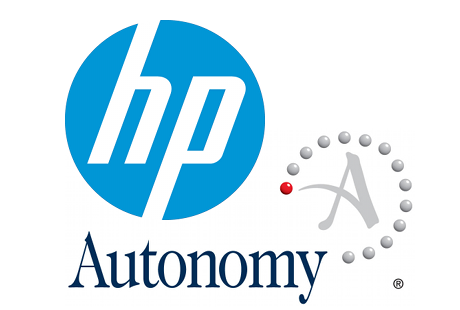IT analysts raised questions about the number of software companies that Autonomy claimed were paying licenses to reuse its IDOL software before HP acquired the company last year.
Yesterday, HP said that Autonomy had "used accounting improprieties, misrepresentations and disclosure failures to inflate the underlying financial metrics of the company", prior to the acquisition.
Among the alleged accounting irregularities exposed by an internal review is "the mischaracterisation of revenue from negative-margin, low-end hardware sales with little or no associated software content as "IDOL product". IDOL is Autonomy’s core content analysis engine, invented by founder and former CEO Mike Lynch.
According to Alan Pelz-Sharpe, an analyst at 451 Research, this alleged "mischaracterisation" is reminiscent of Autonomy’s practice of reporting all of its OEM licenses under the IDOL banner, despite the fact that it also OEMs content filtering functionality called KeyView.
451 Research criticised this practice back in 2010. "[IDOL] costs a lot more than [KeyView], and once the customer has implemented it, the former is a lot harder to replace than the latter," wrote former analyst Nick Patience in July 2010.
"Nevertheless, when Autonomy announces a new OEM customer or a renewal, it usually doesn’t differentiate between these two… [I]t’s quite important to distinguish between OEMing IDOL and OEMing KeyView as the former is much more of a differentiator than the latter."
The implication is that investors would not have had a clear view of Autonomy’s expected OEM revenues without knowing which kind of technology they were selling.
Last year, in the lead up to the HP acquisition, Pelz-Sharpe – who was at the time an analyst at content management analysts Real Story Group – received a dossier of information about Autonomy’s OEM claims from an anonymous source.
The dossier implied that the number of OEM licenses that Autonomy claimed to have sold each quarter was "suspiciously consistent", and pointed out that named OEM partners still listed on Autonomy’s website have since publicly announced their decision to move away from the technology.
Pelz-Sharpe says he passed the dossier, which he knows was also sent to other people, to the UK’s Serious Fraud Office, which HP has now asked to investigate its allegations against Autonomy’s former management.
Whatever the truth behind the concerns that 451 Research and others highlighted, the point is that questions had been raised about Autonomy’s reporting practices before HP agreed to buy the company.
On a conference call with journalists yesterday, HP CEO Meg Whitman insisted that it had undertaken the appropriate due diligence. She also pointed out that Deloitte had given Autonomy’s numbers the all clear, and that Deloitte’s analysis had been checked by KPMG.
When asked why HP itself had not spotted the alleged irregularities, Whitman said: "When you’ve been lied to, it’s hard to find."
But if HP’s allegations against Autonomy’s former management turn out to be true – Autonomy’s former management ‘flatly deny’ them – and the auditors failed to investigate concerns that had been publicly raised, it will be yet another damning indictment of corporate governance in the UK and the IT sector.










